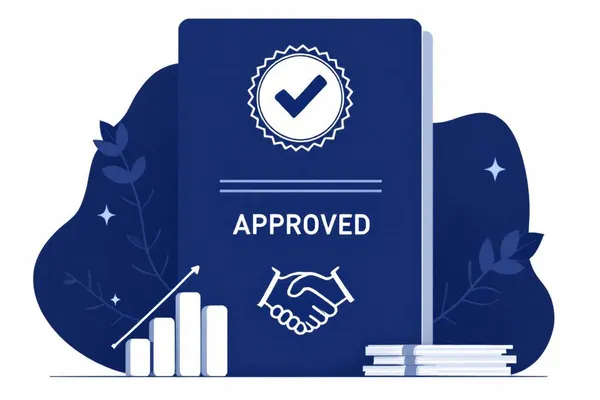Blog
VSME approved by EFRAG
On November 13th 2024, the VSME was approved by the EFRAG SRB. In this blogpost we explain what that means exactly, what the VSME is going to look like and what the next steps are.
Rien HeuverOn November 13th 2024, the VSME was approved by the EFRAG SRB. In this blogpost we explain what that means exactly, what the VSME is going to look like and what the next steps are.
Rien Heuver
On November 13th 2024 the VSME was approved! As a reminder, VSME is short for: Voluntary sustainability reporting standard for non-listed SMEs. In other words: the voluntary standard for (not publicly traded) SMEs to report about their sustainability. With 21 votes in favor and 1 abstaining, there was no doubt about the approval. Cristina Saporetti, the abstaining votee, gave the following reason for that:
It is not clear yet the feasibility for the smallest companies and in terms of costs for the micro enterprises. I understand that there will be guidance that will be developed but I’m not sure yet that they will be able to manage all this information.
Luckily the Green Otter can help with that of course. We keep an eye on all future developments.
SRB is short for Sustainability Reporting Board; the group of people within the EFRAG responsible for developing the VSME. And EFRAG? That is short for European Financial Reporting Advisory Group. An organisation that advises and assists the EU on matters regarding financial and sustainbility reporting.
In other words, this group has been working on the VSME for the past few years. The meeting in which the VSME was approved is publicly available and can be found here. From approximately 2:10:00 onwards the approval and voting is discussed. After the vote, Patrick de Cambourg, chairman of the board, says:
[this] represents a major step forward
And we totally agree!
The new VSME has been simplified compared to the previous draft. In our previous blog we wrote about what the standard is probably going to look like and we were about right. So that means there are two modules: the basic and the comprehensive module. You can download the revised version here on the EFRAG website.
The basic module is intended for micro enterprises and consists of 11 data points that organisations should include in their report. The first two (B1 and B2) are overarching points and the other 9 are distributed among the ESG categories:
The comprehensive module includes extra data points that are likely to be requested by affiliated parties: customers, suppliers, financial parties et cetera. Organisations that will work on a VSME report because of these inquiries/questionnaires are advised to include this module in their report.
The team lead at the European Committe for sustainability reporting, Tom Dodd, mentioned after the vote that the EU plans on going through the same process as it would for mandatory standards (since VSME is voluntary of course). Tom Dodd:
That would include, amongst other things, consulting the eight different EU bodies that we are required to consult [with] for a delegated act. It would also include a further one-month period of public comment, not a full public consultation, on the final draft of the text before adoption by the commission.
In other words, we will have to wait just a bit longer for all formalities to pass. The VSME will likely be officially published in the beginning of 2025.
We at the Green Otter will of course continue to refine our software for creating VSME reports and for mapping out your risks, opportunities and biggest impact areas so that your organisation is best prepared for the future. Want to know more? Let’s get to know eachother! Fill out the form on the right side and we’ll get in touch asap.
Create a free trial account and discover what the Green Otter can do for your organisation.
Try for free